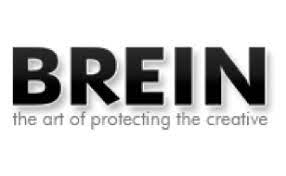 The Dutch anti-piracy organization BREIN found that Bittorrent is still the most popular protocol used for illegal distribution, but also that streaming and download linking sites for illegal streaming and video on demand continue in great demand. Cyberlockers offer premium subscriptions to enable faster downloading, coupled with linking sites to ease discoverability.
The Dutch anti-piracy organization BREIN found that Bittorrent is still the most popular protocol used for illegal distribution, but also that streaming and download linking sites for illegal streaming and video on demand continue in great demand. Cyberlockers offer premium subscriptions to enable faster downloading, coupled with linking sites to ease discoverability.
BREIN reports that Dutch visits to blocked sites have decreased by more than 75 percent Blocking also has increased legal use by as much as 24% among heavy users.
BREIN carried out a broad array of enforcement actions in 2022 ranging from music, video (films and series), books, writings, images and games. Here are the 2022 numbers
- 458 investigations completed, 40 ongoing
- Removed 449 illegal sites/services
- As of December 31 2022, BREIN blocked 7 sites and a year-end total 480 proxies/mirrors dynamically blocked on IP and/or DNS. The blocked sites are: The Pirate Bay, rarbg, 1337x, yts, eztv, limetorrents and kickasstorrents
- Google delisted 341 unique domains related to the blocked sites, bsed on requests sent by BREIN attorneys
- 328 proxies stopped
- 19 illegal traders stopped IPTV/VOD subscriptions; 11 ongoing investigations
- 7 streaming sites taken offline
- Investigated and stopped 19 major uploaders, administrators and/or scripters
- 36 advertisers on illegal sites addressed. These are legitimate companies and organizations, and do not include offers of gambling and other criminal enterprises
- 290,324 Google search results removed. BREIN only reports to Google with regard to titles that are registered for it by rightholders
- 2,869 interventions where online advertisements for illegal copies were removed
- 45 settlements, of which 16 ‘knock & talks,’ consisting of a home visit, often preceded by an ex parte order. A settlement consists of a declaration of abstention with a penalty and an allowance for the costs and any damages
- 8 online cases regarding physical carriers were settled
BREIN reports that Google has been responsive to its de-listing requests, and that individual site de-listings have a multiplier effect that prevents millions of piracy requests by being invisible in search results.
Enforcement is up to rights-holders
The BREIN Foundation was set up as a proxy for the media industry to drive rights enforcement, as Dutch government policy assigns primary responsibility for enforcing their Intellectual Property rights to the rights-holder. Criminal investigation and prosecution is the last resort. BREIN assisted in four cases in which local police investigated copyright infringement.
Bittorrent warnings suspended for lack of cooperation
BREIN wanted internet access providers, including the Dutch ISP Ziggo, to forward informative warnings to Frequent or Long-term Uploaders (FLUs) whose IP addresses BREIN has detected. No name, address and place of residence data (name and address) were then requested for further enforcement and the IP addresses were deleted. The Ministry of Education, Culture and Science provided a subsidy to measure the effect of the warnings after six months.
However, Ziggo has refused to cooperate. At the beginning of 2022, a judge ruled that Ziggo would need a permit from the Dutch Data Protection Authority (AP) because an IP address could be regarded as criminal personal data with regard to copyright infringement. In appeal, the Court of Appeal briefly ruled that warning alone is not enforcement because BREIN would not be able to file a claim if the infringement did not stop after warning.
BREIN sent a total of 1157 warnings to all access providers in one year. The project was suspended in early 2022 after the summary judgment. BREIN has decided not to appeal in cassation and does not rule out that the FLU project could be adapted to the usual form of enforcement. In that case, after a summons, a claim will be filed if no response is given.
Know Your Business Customer (KYBC)
Because illegal platforms operate anonymously and do not respond adequately to summons, BREIN approaches hosting providers, among others, not only with summons to take the service offline, but also to provide identifying data. In the event of refusal, they will be taken to court.
This data is necessary to hold responsible parties accountable and to stop illegal trade. In practice, the name and address details provided by a customer often turn out to be incorrect and no or insufficient effort has been made to verify them. In addition, hosting providers offer their services through foreign resellers who make no effort to verify the identity of their customers.
In the EU’s Digital Services Act (DSA), case law has confirmed that KYBC applies to online marketplaces, although this has not been extended to other intermediaries such as hosting providers.
Read the full report
BREIN Annual Report 2022. Online publication. March 14, 2023. BREIN, Netherlands (Auto-translated from Dutch to English by Google Translate)
Why it matters
The BREIN Foundation provides collective protection of copyright and neighboring rights for creators, performing artists and the creative media industry of producers, publishers, broadcasters, distributors and platforms.
BREIN’s approach focuses on all forms of illegal supply, regardless of the technology used for distribution. These include Bittorrent, cyberlockers, usenet, IPTV websites and social media that link to them, as well as stream ripping sites and illegal auction (or ‘supply and demand’) sites of files and physical carriers including vinyl.
About thirty sector and collective management organizations and their members are affiliated with BREIN, amounting to several thousand companies and tens of thousands of makers related to music, films, series, books, writings, images and games.












